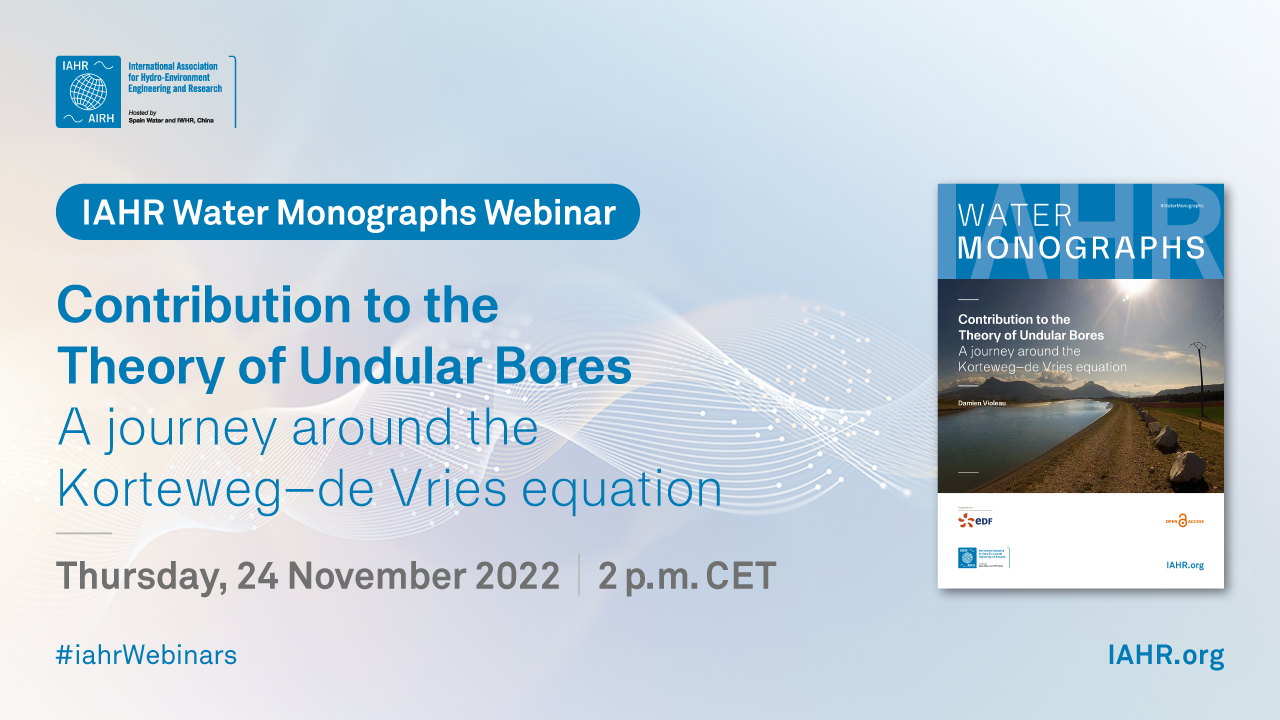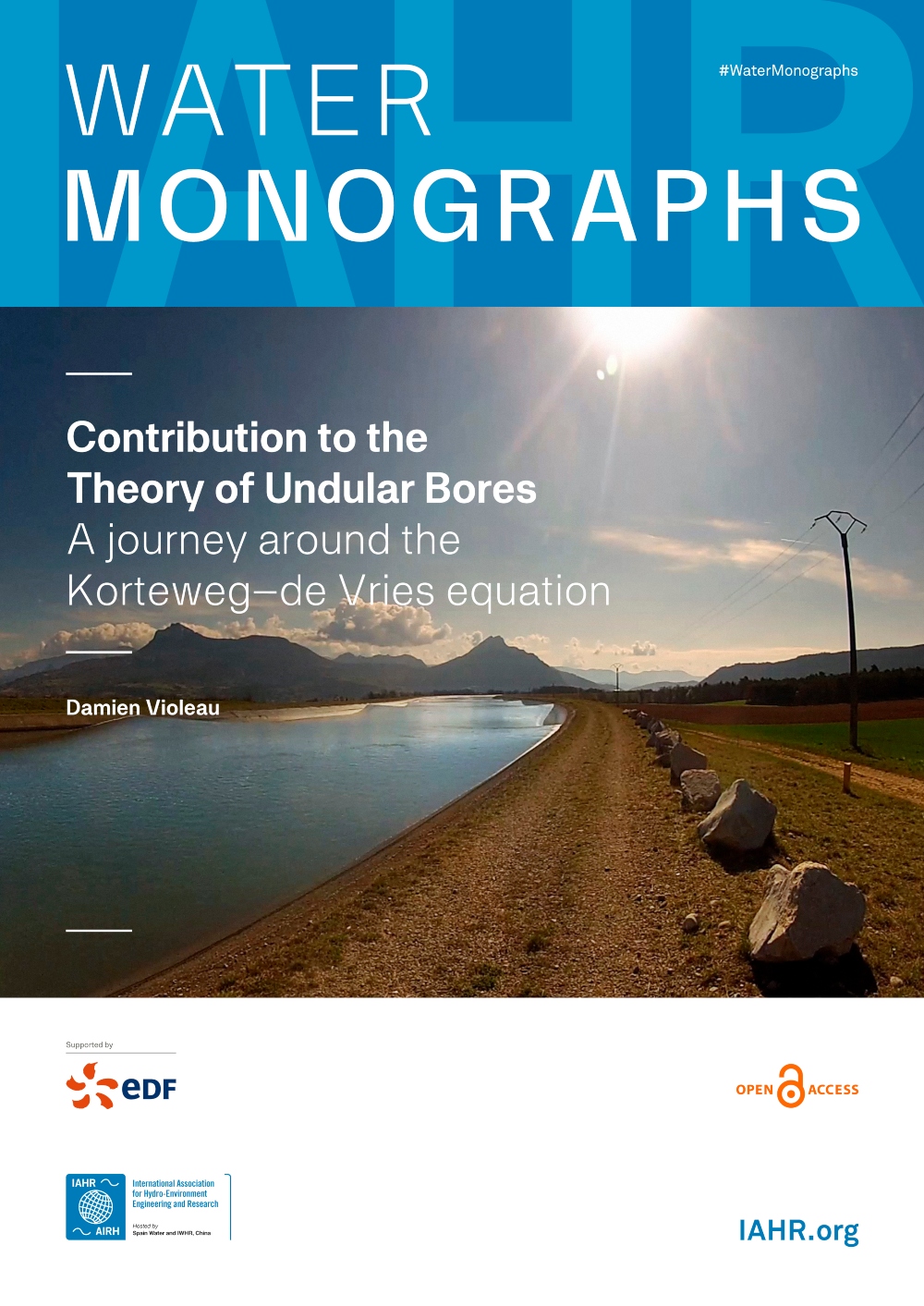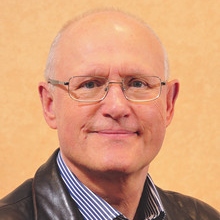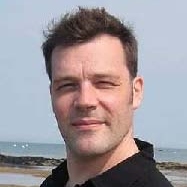IAHR Water Monographs Webinar 1: Contribution to the Theory of Undular Bores. A Journey around the Korteweg-de Vries Equation

~ FREE & LIVE-STREAMED ~
IAHR Water Monographs Webinar 1
Thursday, 24 November 2022 | 2 p.m. CET
Watch on demand Download Water Monograph 1
Open Access IAHR Water Monograph Series
#WaterMonographs
The Open Access IAHR Water Monograph Series presents information on physical processes, measurement techniques, theoretical material, numerical modeling techniques, engineering applications, and historical and cultural matters in an appealing, readable, and well-illustrated manner.
IAHR Water Monographs Webinar 1
 Undular bores occur in oceans (final stage of tsunamis, mascarets in estuaries) as well as in rivers or channels (Favre waves upstream from hydraulic dams). They look like a long, undulating hydraulic jump without air-water mixing. Undular bores are difficult to understand and to model, whether it be from a theoretical perspective or through numerical simulation, because they are both non-linear and dispersive, i.e., they have arbitrary amplitudes and moderate wavelengths.
Undular bores occur in oceans (final stage of tsunamis, mascarets in estuaries) as well as in rivers or channels (Favre waves upstream from hydraulic dams). They look like a long, undulating hydraulic jump without air-water mixing. Undular bores are difficult to understand and to model, whether it be from a theoretical perspective or through numerical simulation, because they are both non-linear and dispersive, i.e., they have arbitrary amplitudes and moderate wavelengths.
Attendees will have the opportunity to:
Go through some of the most important features of undular bores from the theory of the Korteweg—de Vries (KdV) equation. The latter is a simplified equation for weakly non-linear, weakly dispersive water waves and has many interesting mathematical and physical properties.
Figure out how to derive this equation from the basics of fluid mechanics, then study the main physical solutions to the KdV equation: the family of cnoïdal waves and solitary waves.
Learn how the KdV equation can be rearranged through Whitam’s modulation theory to describe slowly varying wave trains through the propagation of Riemann invariants, and how Gurevich and Pitaeevski used the latter theory to model undular bores.
This webinar helps the attendees understand the mathematical description of processes in dispersive wave trains (also called dispersive shock waves). ![]()
Speakers
Moderator
Speaker
Professor Vladimir Nikora is Chair of the IAHR Technical Committee on Fluid Mechanics and Member of the Publications Committee and Task Force on Water Monographs
Damien Violeau was educated at Ecole des Ponts (literally, the ‘School of Bridges’), one of the most prestigious French scientific educational institutes, where he is now full professor. Also, he is a senior Research engineer at EDF, one of the biggest energy companies in the world. His main fields of interest are free-surface flows, turbulent flows, numerical simulation, coastal protection, and river-water works. In 2015, he was the recipient of IAHR’s Arthur T. Ippen Award.

